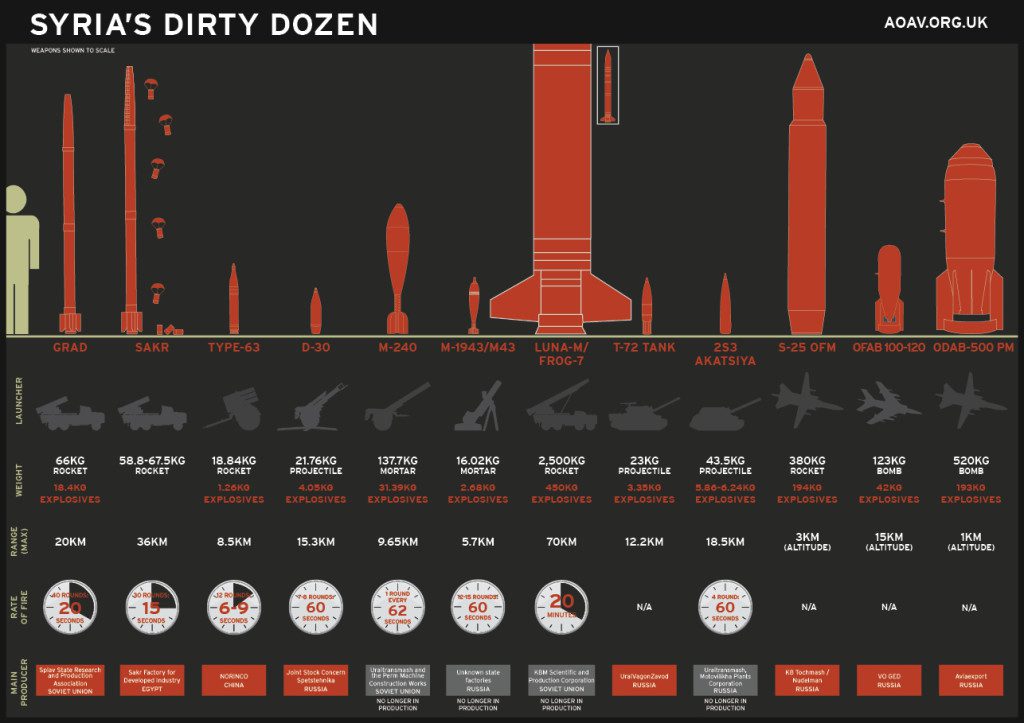Action on Armed Violence is circulating some terrific info-graphs and advocacy videos documenting civilian harms from various conventional weapons in Syria:
By even the most cautious estimates, explosive weapons have killed and injured tens of thousands of people in Syria. They are thought to be responsible for about 40% of deaths in the conflict.
Crucially, civilians are overwhelmingly the victims of this group of deadly weapons, which includes rockets, mortars, tank shells, and air-dropped bombs. In Syria, more than 90% of the casualties of explosive weapons have been civilians.
And while the horrifying effects of chemical weapons have been dominating headlines in the last month, rockets, mortars and artillery are continuing to kill more and more people on daily basis. Just last week, 11 people died when a plane fired missiles into a field hospital in northern Aleppo province.
What NGOs are calling attention to is what Nina Tannenwald refers to as a perverse effect of international prohibitionary norms. While norms can constrain bad behavior, such norms also exert “permissive effects” whereby the social sanction against one type of action implicitly legitimizes others. The international reaction against chemical weapons in Syria, to the exclusion of attention to other types of civilian harm, constitutes such a “permissive effect” on civilian targeting and the indiscriminate use of explosives which should rightly be questioned by human security advocates.
Charli Carpenter is a Professor in the Department of Political Science at the University of Massachusetts-Amherst. She is the author of 'Innocent Women and Children': Gender, Norms and the Protection of Civilians (Ashgate, 2006), Forgetting Children Born of War: Setting the Human Rights
Agenda in Bosnia and Beyond (Columbia, 2010), and ‘Lost’ Causes: Agenda-Setting in Global Issue Networks and the Shaping of Human Security (Cornell, 2014). Her main research interests include national security ethics, the protection of civilians, the laws of war, global agenda-setting, gender and political violence, humanitarian affairs, the role of information technology in human security, and the gap between intentions and outcomes among advocates of human security.


0 Comments